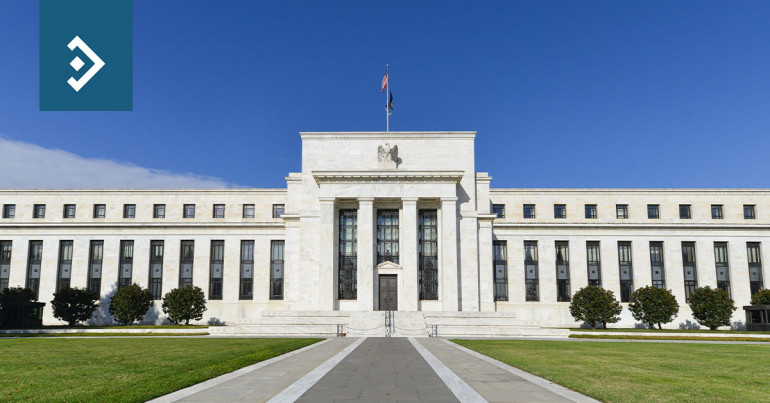
Powell to risk wrath of Trump and Market?
Morning mid-market rates – The majors
July 8th: Highlights
- Employment data further clouds rate cut decision
- U.S. rates and Brexit continue to set the scene
- ECB confirms that it too is “data-dependent”
Trump’s Twitterscope turns on Fed again
While analysts have been basing their expectations upon the three-month moving average it is generally accepted that the economy needs to be adding around 180k new jobs per month to continue to grow at an acceptable rate. This takes in cyclical events, changes in workforce demographics and industry-specific factors.
There are so many factors that can be considered one-offs that the only way to consider the impact on the economy is to look at longer-term averages which include revisions.
The average new jobs created so far in 2019 is 175.5k considering the revisions made to the data for the first five months and June’s “raw” number which was released on Friday.
The Federal Reserve, having signalled a cut in rates at its next meeting which will be on July 30/31, now appears to be less sure of its plans. Chairman Jerome Powell and his colleagues are reverting to their “data dependency line.
One person who is in no doubt of the need for a cut in rates is President Trump. He turned his gaze on the Fed on Friday commenting that “the Fed would cut rates if it knew what it was doing” and “the Fed is putting the U.S. at a disadvantage versus Europe and suppressing stock market gains”. While this is Trumps “stock” response to questions over the economy, it was interesting that he used Europe not China as an example of the U.S. being at a disadvantage. This is a possible indication of the delicacy of the trade negotiations between Washington and Beijing.
Following the release of the data on Friday, the dollar index rose to a high of 97.45, closing at 97.25.
Considering your next transfer? Log in to compare live quotes today.
Sterling obeying two masters
The pound’s value is far better judged by its trajectory versus the euro as day to day volatility in the USD clouds the picture for Sterling. The long term (180 day) average of the value of the pound versus the single currency is 1.1391. The pound is trading significantly below that level having closed at 1.1159 on Friday reaching a low of 1.1130. Despite the “technical” picture pointing to a slowing of the descent, the outcome of Brexit will still determine if there is a to be a test or break of 1.1000.
The votes on who the Conservative rank and file want as their new leader will now be arriving to be counted with the official date for the result still two weeks away. The candidates; Jeremy Hunt and Boris Johnson will feel that they have done all they can.
While Hunt has tried to make it a contest between personality and policy, he has probably failed for two reasons: First, his Brexit plans appear to be less convincing than Johnson’s while the “fox-hunting gaffe” may return to haunt him. Second, the “Middle-Englanders” who make up the old school Conservative voters are heavily targeted by Johnson who has the power of personality to make them believe in him. Also, while his Brexit plans may appear stark, they are clear and easily understood (provided they can be believed).
The pound fell to a low of 1.2481 on Friday versus a rampant dollar, closing at 1.2525 its lowest close since December 12th.
ECB taking its lead from the Fed
ECB policymaker Francois Villeroy de Galhau, who is also the Governor of the Banque de France, commented in an interview released this morning that, “We consider the markets, but we are not market dependent. We are very much data-dependent”. This echoes the sentiments also voiced by BoE Governor Mark Carney recently.
While the three countries; U.S. UK and Eurozone are different stages in the economic cycle and face vastly different challenges, their Central Banks are acting in unison in response. This may be a concerted effort, but, it may also illustrate a singular lack of imagination which both Trump, in the case of the U.S., and the markets in Europe strongly disagree with.
Deutsche Bank, one of the global behemoths of the financial markets has announced plans to retrench, a move which will cost an estimated Eur 7.5 billion over three years. It will cut 18,000 jobs over the same period as it withdraws from equity markets entirely. Most of the jobs will be lost in London and New York were equity market-making activities are based.
Having failed in its attempt to merge with its domestic rival Commerzbank, Deutsche will try to grow its transactional banking business where capital requirements are less.
That is possibly an indication of the concerns in the Eurozone banking sector in general over the level of bad loans and the inability of banks to raise enough new capital to increase lending.
In Greece, Alex Tsipras, the Prime Minister who swept to power four years ago will limp out of office after a crushing defeat in the General Election. The centre-right New Democracy Party has won convincingly in a result seen as a “bucking of the recent trend” for populist parties to succeed over nationalists. It remains to be seen how the new Government will deal with its relationship with Brussels and the crushing debts which continue to haunt the country.
On Friday, the euro closed at 1.1225, having reached a low of 1.1205 in the wake of the U.S. NFP.
Have a great day!

About Alan Hill
Alan has been involved in the FX market for more than 25 years and brings a wealth of experience to his content. His knowledge has been gained while trading through some of the most volatile periods of recent history. His commentary relies on an understanding of past events and how they will affect future market performance.”



